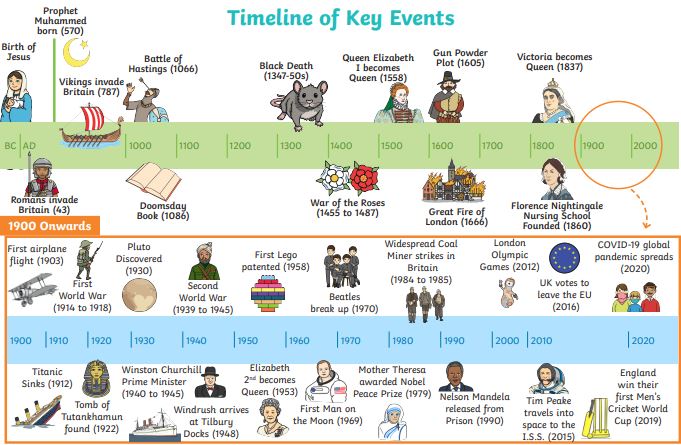History

'The more you know about the past, the better prepared you are for the future.'
Theodore Roosevelt
We care for all God’s children, unconditionally. As a rural town community, the Parable of Jesus as the Good Shepherd (John 10:11) resonates with our children who feel valued and welcomed as individuals. All members of our school family, the community and the wider world are valued and respected.
Intent
At St Nicholas Chantry Primary School, we are committed to providing our young historians with an engaging and enriching history curriculum. Our primary goal is to foster a deep and meaningful understanding of the past, instill respect for the people who lived in different times and nurture an appreciation for the fascinating ways historians make sense of history. We believe in making history come alive through the exploration of our local area, using a wide range of texts, repeated encounters with historical concepts, the development of chronological knowledge, the creation of a mental timeline of the past and the exploration of various historical periods and civilizations. We thrive on producing children who are increasingly culture aware and who are able to make secure links to different time periods.
We aim for pupils to:
- Develop a curiosity and fascination about the local area, Britain's past, and the wider world's history.
- Think critically, analyse evidence, evaluate arguments, and develop perspectives and judgment.
- Deepen their understanding of history and develop information gathering skills.
- Gain insights into how our past has been influenced by the wider world and different cultural heritages.
- Learn from history to model the future and better understand society and their role within it.
- Explore and appreciate the development of other cultures through time.
- Use historical events as a context to enhance key learning skills, including communication, collaboration, problem-solving, and critical thinking.
- Engage in experiential learning through fieldwork and educational visits, extending their understanding beyond the classroom.
Implementation
We will achieve this through:
- In the Early Years, children will begin to make sense of their own life history and that of their families.
- In KS1 and KS2 a curriculum which progressively builds on children’s historical concepts, chronological understanding, change / continuity and cultural awareness.
- Using our local area to the maximum in order to facilitate learning and increasing awareness of our local history.
- A cultural of enquiry where children are encouraged to ask questions and seek answers about the past
- A scaffolded approach to all lessons to ensure all learners achieve
- Ensuring all staff have strong subject knowledge and can access support where necessary.
- Explicitly teaching historical terminology and concepts into their language skills, fostering a deeper understanding of both history and language.
Impact
The impact of our curriculum is that pupils will not only have gained knowledge about history but also a deep appreciation for the stories that have shaped our world. We aspire to equip our children with the skills and attitudes needed to be critical thinkers, empathetic citizens and lifelong learners, who understand the importance of history in shaping the present and future.

